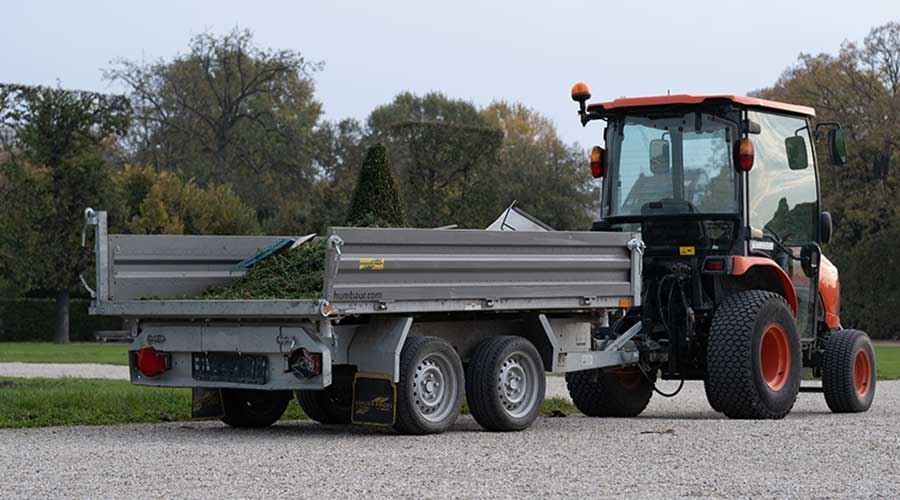Mowers Fuel Grounds Departments' Sustainability Initiatives
Wherever grounds managers look, sustainability has taken hold. From water conservation to chemical use to project planning, the desire to minimize the impact on the environment is a top priority.
Perhaps nowhere is the shift toward sustainability in grounds care more apparent than in equipment specification. Because the cost of buying, operating, and maintaining mowers, utility vehicles, trucks, and hand-held tools makes up such a large part of departments' budgets, scrutiny of this process is greater than ever.
To meet the challenge, managers are rethinking traditional approaches to equipment specification and taking a closer look at features and functions that improve the sustainability of their operations.
Mower Matters
In many organizations, the push for sustainability comes from both within the grounds department and the organization as a whole.
"I'm certainly interested in sustainability wherever it's possible and feasible, and the administration is on board with that," says Marion Bolick, manager of grounds with Lexington Medical Center, a 384-bed facility located on 65 acres in West Columbia, S.C. "My vice president has asked me to look at alternative fuels and other sustainable ways of doing things."
In other organizations, grounds departments have taken the lead in pushing sustainability.
"The energy comes from within the department," says Gerald Landby, director of grounds with Carroll College in Helena, Mont. "We've had an interest in this issue for more than a decade."
Many managers start their move toward more sustainable specification with mowers because operators use them frequently and they are big-ticket purchases. The top sustainability consideration in such decisions involves the equipment's power source, including gasoline, bio-diesel, propane, and electricity.
Landby's department uses three mowers — with widths of 48, 72, and 84 inches — two of which use diesel fuel. His decision to use diesel mowers was "dictated by resources," meaning, in part, a diesel distribution facility is near campus, but he says the fuel also offers power and performance benefits. For now, discussions of alternative fuels are not a top priority.
"I have no opposition to looking into bio-fuels or propane," Landby says. "It just hasn't come here yet."
Bolick says propane-powered equipment might be in the near future for his seven-person department.
"Our mowers are all gasoline (powered)," he says, adding his crews use three zero-turn riding mowers, two walk-behind mowers, and six push units. All of the mowers have mulching decks. "When the time comes for a replacement, I will look at propane-powered mowers to see if it is feasible for us. I'm not sure it's feasible, but I don't want to assume it won't be.
"Peers have given me feedback that they've had success with (propane) units. They've been on the market a few years now, and I'm not getting negative feedback."
Related Topics:














